
Malian authorities ready to create war college
Mali’s National Transitional Council passed a bill Thursday to create a War College. The CNT, which acts as a legislative assembly during the transition period, voted to create the school to …
Over 150 hectares of sugarcane fields have been destroyed in Cameroon due to violent clashes between workers at the Société Sucrière du Cameroun (SOSUCAM) and police. The unrest, which erupted earlier …
FIFA has announced the immediate suspension of the Congolese Football Federation (FECOFOOT), following escalating tensions between the Ministry of Sports and the football body. The dispute, which has been ongoing for …
A federal judge has delivered a major blow to President Donald Trump and his ally, billionaire Elon Musk, halting plans to pull thousands of staffers from the U.S. Agency for International …

Mali’s National Transitional Council passed a bill Thursday to create a War College. The CNT, which acts as a legislative assembly during the transition period, voted to create the school to …
Mali’s National Transitional Council passed a bill Thursday to create a War College. The CNT, which acts as a legislative assembly during the transition period, voted to create the school to strengthen the country’s national security arsenal, iand in particular by training future Malian army officers.
The EGM, Mali War College, will “provide high-level training for senior officers of the defense and security forces” -army, police, gendarmerie- but also for certain civilian executives. It will also be a place for research on defense and security strategies, in collaboration with the academic community.
The officers who graduate from this program are destined to occupy the highest positions on a staff, within the Malian army, of course, but also in international operations such as, for example, UN peacekeeping missions.
Gaining autonomy and cohesion
This war school has been talked about for several years, but the transitional authorities have made it a priority to gain autonomy and cohesion: to date, the army’s senior staff have been trained abroad, which creates a dependency on the number of places, and in different countries, which then leads to internal quarrels.
No date or location has yet been given, but the cost of the future War College is estimated at more than 2.5 billion CFA francs.
While the controversy over the possible arrival in Mali of the Wagner group, to which training missions could be entrusted, has not died down, a French company made up of former military personnel has been asked to provide training for the future war school.

South Africa is seething over Britain’s decision to keep the country on its coronavirus “red list,” a move that means travellers must pay for pricey hotel quarantine on their return to …
South Africa is seething over Britain’s decision to keep the country on its coronavirus “red list,” a move that means travellers must pay for pricey hotel quarantine on their return to the UK.
Renowned for its wildlife and breathtaking scenery, South Africa is struggling to recover from the crippling blow coronavirus dealt to a tourism industry that directly accounts for three percent of the nation’s economy and — prior to the pandemic — was one of the few employment bright spots, providing more than 700,000 jobs.
Shut off from the rest of the world for most of 2020 and then blacklisted by several governments over the discovery of the Beta variant in December, South Africa is slowly starting to see a trickle of high-paying foreign visitors as infection rates fall.
Travellers coming from Europe and the US, South Africa’s biggest tourism markets along with the UK, can currently holiday and then self-isolate at home upon return — a hassle that some are prepared to take.
But the UK has kept South Africa on its red list of high-risk countries, meaning anyone arriving from South Africa is forced to quarantine in a hotel for 10 days, costing more than $2,400 (2,000 euros) per person.
The stratospheric cost rules the country out for most British tourists.
With more than 400,000 visitors a year in pre-pandemic times, the UK was South Africa’s biggest source of long-haul travellers, especially during the northern hemisphere winter.
Some British nationals such as Claire Alexander have been stuck in South Africa for over a year because of the costly restrictions.
“I’ve just spoken to my 91-year papa in Stirling and it’s pretty sore knowing I can’t get home,” said the mother of two, whose youngest child has yet to meet “his Scottish clan”.
Marc Mendelson, a professor of infectious diseases at the University of Cape Town, is a Briton who earned his PhD at Cambridge’s prestigious Addenbrooks Hospital.
He said he was “embarrassed” by his home country’s government.
“Misinformation, misrepresentation, outdated & inaccurate science,” he tweeted this week.
– Beta blocker –
The British embassy in Pretoria acknowledged “positive developments” in South Africa.
It noted “cases going down, data on variants of concern improving and vaccinations rising.”
But it said concerns remained “about the continued presence of Beta given its potential ability to circumvent vaccines”.
Nonsense, South Africa’s leading genomics expert Tulio de Oliveira said, tweeting on Monday that his research showed the Delta variant had now completely replaced Beta in South Africa.
That was confirmed by Adrian Puren of the National Institute for Communicable Diseases, who told AFP that the Beta variant was “undetectable” in cases sequenced in September, and that concerns over its vaccine resistance were “moot”.
“Really unscientific decision,” de Oliveira said, adding that South Africa has a higher vaccination rate than some non-red listed countries — including India, where the Delta variant first appeared.
“We have a smaller number of infections than the UK… So why this discrimination?” de Oliveira said, adding that: “We look forward to engaging the UK scientists and for constructive discussion with (the) UK.”
– Jabs pickup –
Daily new cases in South Africa peaked at the end of June at just over 26,000, according to the World Health Organization (WHO). Britain continues to see more than 30,000 new cases a day.
Vaccinations, meanwhile, are picking up after a slow start, with around 20 percent of South African adults now fully jabbed.
To date the country has recorded more than 2.8 million cases, the highest in Africa, of which at least 86,376 have been fatal. Britain has recorded 7.5 million cases and at least 135,455 deaths.
South Africa’s main inbound tourism association has also been lobbying London to remove the red tag.
Director of luxury holiday booker Discover Africa Group, Andre Van Kets, argued the measures no longer made sense given infection and vaccination rates were “moving in the right direction”.
British tourists are still enquiring and making plans for 2022 and 2023, he said, but often pull out when asked to pay a deposit.
“There is no reasonable basis for keeping South Africa on the red list,” Foreign Minister Naledi Pandor said this week in a statement touting the country’s “robust vaccination programme and excellent science”.
“It’s ridiculous,” said Andre Retief of tour operator Safari With Us, which has relied on the UK for 20 to 30 percent of its bookings.
“Covid is all over the world now and coming on safari is actually quite safe.”
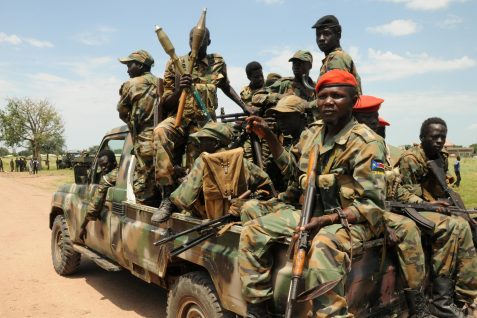
An attempted coup in Sudan “failed” early Tuesday, state media reported, without identifying the plotters. “There has been a failed coup attempt, the people should confront it,” state media reported. A top …
An attempted coup in Sudan “failed” early Tuesday, state media reported, without identifying the plotters.
“There has been a failed coup attempt, the people should confront it,” state media reported.
A top government source told Agence France-Presse (AFP) the plotters had attempted to take over the state media building but “they failed.” Another Sudanese source said that measures have been taken to contain it, according to Reuters. The source, speaking on condition of anonymity, said the coup had involved an attempt to take control of state radio in Omdurman, across the Nile River from the capital Khartoum.
Sudan’s Sovereign Council spokesperson Mohamed al-Faki Suleiman said Tuesday that the Sudanese army will issue a statement shortly to address the latest developments.
“All is under control. The revolution is victorious,” he wrote on Facebook, calling on the Sudanese to protect the transition.
A military official said an unspecified number of troops from the armored corps were behind the attempt and that they tried to take over several government institutions but were stopped in their tracks.
The official, who spoke on condition of anonymity because he was not authorized to brief the media, told The Associated Press (AP) many troops, including high-ranking officers, have been arrested.
Sudan has been on a fragile path to democratic rule since the military’s ouster of the country’s longtime autocratic ruler Omar al-Bashir in April 2019, following four months of mass protests. The country is now ruled by a joint civilian and military government that faces towering economic and security challenges.
Deep political divisions and chronic economic problems have overshadowed the fragile transition. In recent months, the government has undertaken a series of tough economic reforms to qualify for debt relief from the International Monetary Fund (IMF).
The steps, which included slashing subsidies and a managed float of the Sudanese pound, were seen by many Sudanese as too harsh. Sporadic protests have broken out against the IMF-backed reforms and the rising cost of living.

A House of Representative member, Bamidele Salam (PDP-Osun), has called on the Central Bank of Nigeria (CBN) to stop the continuous fall of the value of Naira against the dollar. Salam, …
A House of Representative member, Bamidele Salam (PDP-Osun), has called on the Central Bank of Nigeria (CBN) to stop the continuous fall of the value of Naira against the dollar.
Salam, in an interview with the News Agency of Nigeria (NAN) on Tuesday in Abuja, decried the continuous devaluation of the Naira, saying that the Nigerian currency was doing badly when compared to other currencies of the world.
As of the time of filing this report, a dollar was valued at N567 in the parallel market while the official price was N410 to a dollar.
The lawmaker said the CBN should do something urgent about the situation to save the players in the Nigerian economy.
“Though the value of the naira is a functionality of many things, it appears to me that there is a deliberate policy of the CBN to devalue the naira consistently.
“This is very worrisome because of its effect on trade, investment and on the consumption of goods and services both locally and those imported which depend on raw materials.
“Are we saying that the Ghanaian economy, the Sierra Leonean economy, the Nigerian economy is doing better than the Nigerian economy? The Niger currency is doing better in the international market than the naira is in the last six months.
“Are we saying that the economy of Liberia and the economies of all these countries are doing better than that of Nigeria?
“Why will we continue to look on and continue to have this free fall; in the parallel market today, a dollar is over N500,’’ he said.
He said he had approached the House to urge the CBN to take the urgent steps and that the House Committee on Banking and Currency should liaise with the CBN on the matter.
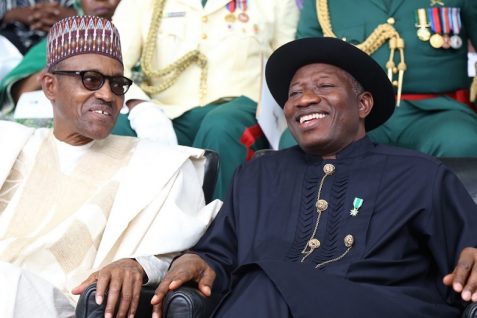
Activist, Deji Adeyanju has revealed how the All Progressives Congress party, APC, plans to embarrass former President Goodluck Jonathan in 2023. Adeyanju claimed that the APC is planning to deceive Jonathan …
Activist, Deji Adeyanju has revealed how the All Progressives Congress party, APC, plans to embarrass former President Goodluck Jonathan in 2023.
Adeyanju claimed that the APC is planning to deceive Jonathan with its presidential ticket and then embarrass him.
In a series of tweets, the rights activist disclosed that APC has planned not to give Jonathan its presidential ticket after tricking him in0to joining them.
Adeyanju urged the former president to quit partisan politics and remain a democrat for the sake of his image.
“I have been reliably informed that they are plotting to embarrass Goodluck Jonathan by deceiving him to join APC.
“They will never give him the presidential ticket. It’s a good strategy I must admit to sell APC by tricking GEJ to join the party.
“GEJ should quit partisan politics and maintain his profile as a respected African statesman & democrat to avoid disrespect,” he wrote.
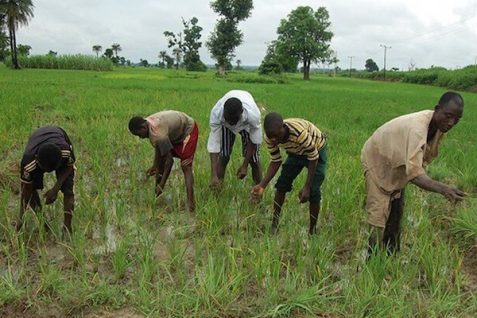
The Nigeria Incentive-Based Risk Sharing System for Agricultural Lending (NIRSAL Plc) has completed training and mentorship programmes for additional 780 farmers and other agricultural value chain actors across the country in …
The Nigeria Incentive-Based Risk Sharing System for Agricultural Lending (NIRSAL Plc) has completed training and mentorship programmes for additional 780 farmers and other agricultural value chain actors across the country in its ongoing efforts to improve the yield, capacity and general productivity of Nigerian farmers.
According to NIRSAL’s spokesperson, Anne Ihugba, the programmes, which held in the six geo-political zones, were a continuation of efforts targeted at achieving a key component of NIRSAL PLc’s mandate: de-risking of the agricultural value chain in order to encourage more investment in agribusiness by the financial sector.
‘The series of training sessions under the NIRSAL Strategic Business Support Services (SBSS) is part of NIRSAL Plc’s Technical Assistance pillar aimed at building the capacity of value chain actors for improved production, handling, processing and marketing of agricultural commodities.
‘The sessions focused on ten Commodities of Interest (COI) that have ecological and economic advantages in each region. The commodities include Rice, Ginger, Maize, Fresh Fruit & Vegetables (FFV), Cassava, Beans, Aquaculture, Oil Palm, Livestock and Cotton.
‘During the NIRSAL SBSS sessions, farmers as well as input suppliers, processors, transporters, exporters, and traders of agricultural products were trained on modern, business-oriented pre-upstream, upstream, midstream and downstream operations with a view to achieving the micro & macroeconomic effects of farmer income enhancement and Gross Domestic Product (GDP) increase
The NIRSAL SBSS programme identified farmers and value chain actors most in need of training, assessed value chain gaps, designed intervention approaches and implemented same; the main approach being a four-week long mentorship programme comprising in-class and field sessions”, she explained.
She added that the choice of the selected commodities was informed by the NIRSAL Agricultural Commodity Ecological Area (ACEA) map which it developed and obtained validation for from relevant research institutes. NIRSAL Plc believes that ACEA-compliant agricultural investments hold the highest chances for success in terms of production and sale.
‘Accordingly, in the North-Central, the Benue State SBSS focused on Rice, Ginger and Maize, which are NIRSAL COIs that possess the highest factor productivity in the state.
‘In the Federal Capital Territory (FCT), the SBSS trained operators in the FFV Value Chain. The rationale for selecting FFV is hinged on the FCT’s urban consumer market. The training sessions took place in Kuje, Nyanya, Mararaba, Apo, Lugbe, the Municipal, Gwagwalada, Dei-Dei, and Abaji.
‘In the South-South, the Rivers State SBSS focused on FFVs as well, in addition to Aquaculture. Stakeholders were trained in Rumuola, Wenpey, Aluu, Enekah, Elekahia, Eleme, Mgbuoba, Elelenwo, Igwuruta, Eliozu, and Rumuodomaya.
‘In the South-East, the focus was on the Rice and Cassava Value Chains. Rice, a commodity produced in every Nigerian state, was also under focus in the Rivers State SBSS exercise.
‘Typical of states with large urban areas and high volumes of rainfall, another FFVs state is Lagos. Stakeholders were met in the Kosofe – Ikorodu, Iyana – Iba, and the Lekki – Ajah axes. In Ekiti State, across Ado-Ekiti, Orin Ekiti, Ijero, and Ogbese, Maize, Fish, Rice, and Oil Palm stakeholders, respectively, were met,’ Ihugba added.
The nationwide SBSS exercise continued in the North-East with Adamawa and Taraba States for Integrated Livestock and Beans Value Chain actors, respectively.
The exercise culminated in Kaduna and Katsina States, both with comparative advantage in the production of high-quality, in-demand Ginger and Cotton, respectively. Value chain actors received training on the production and packaging, as well as on the servicing of not only the domestic market but also on ways to take advantage of an export market with huge economic potentials for Nigeria.
Since its inception, NIRSAL Plc has provided training on Good Agronomic Practices to over 700,000 farmers and trained over 2,600 mid-management and Agric desk officers of commercial banks.
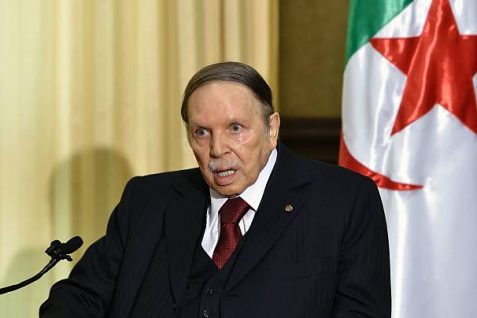
Algeria on Sunday buried Abdelaziz Bouteflika, the North African country’s longest-serving president, at a cemetery for its independence heroes, but without the honours accorded to his predecessors. Bouteflika died on Friday …
Algeria on Sunday buried Abdelaziz Bouteflika, the North African country’s longest-serving president, at a cemetery for its independence heroes, but without the honours accorded to his predecessors.
Bouteflika died on Friday aged 84, after a career which took him from being the world’s youngest foreign minister to one of its oldest heads of state, but ended with a humbling fall from power.
The veteran strongman had lived as a recluse since quitting office in April 2019 after the military abandoned him following weeks of street protests sparked by his bid to run for a fifth presidential term.
His muted funeral, with no lying in state and just three days of national mourning instead of eight, reflected a mixed legacy that left many Algerians indifferent to the ceremony.
“Frankly, I’ve got better things to do than follow the funeral of a president who left the country in a terrible state,” retired financial sector employee Fares told AFP in the capital Algiers.
But after the burial, around 200 mourners gathered around his tomb and placed flowers on it, an AFP photographer said.
Bouteflika, who had first served as foreign minister in the mid-1960s, swept to the presidency in 1999 on a wave of popular support as his amnesty offer to Islamist militants helped bring an end to a decade-long civil war.
But despite economic progress amid high oil prices in the early years of his rule, crude exporter Algeria later saw growing corruption and unemployment which became key drivers of the Hirak pro-democracy movement that eventually ousted him.
– Muted ceremony –
President Abdelmadjid Tebboune flanked by top government officials attended Sunday’s funeral, while the minister for independence fighters, Laid Rebiga, read an eulogy.
An armoured vehicle towed his flag-draped coffin on a gun carriage adorned with flowers and escorted by lines of police on motorcycles.
Apart from family members, government members and foreign diplomats attended the ceremony, guarded by blue- and black-uniformed security officers.
The procession travelled from Bouteflika’s residence to the cemetery east of downtown Algiers, as bystanders filmed it with their mobile phones.
Tebboune, who succeeded Bouteflika and once served as his premier, placed a wreath of the freshly-dug tomb amid a gun-salute, the official APS news agency reported.
Only journalists from state media were given access to the ceremony which was not broadcast live, in contrast to the fanfare of previous presidential deaths.
The People’s Palace, where other presidents had lain in state, appeared to have been prepared to display his remains before the interment, but this was cancelled.
– Ill health and protests –
Bouteflika had wanted to outdo his mentor, the country’s second president Houari Boumediene, by boosting Algeria’s regional influence and turning the page on a civil war in the 1990s which killed around 200,000 people, University of Algiers politics lecturer Louisa Dris Ait Hamadouche said.
Instead, “the institutions of the state have never been so weakened, so divided or so discredited,” she said.
Dubbed “Boutef” by Algerians, Bouteflika was known for wearing his trademark three-piece suit even in the stifling heat, and won respect as a foreign minister as well as for helping foster post-civil war peace.
Algeria was largely spared the uprisings that swept the Arab world in 2011, something many credited to memories of the civil war and a boost in state handouts.
But graft under Bouteflika and his circle left Africa’s largest nation by surface area, with vast oil wealth, with poor infrastructure and high unemployment.
Bouteflika also faced criticism from rights groups and opponents who accused him of being authoritarian.
He suffered a mini-stroke in April 2013 that affected his speech, and he was forced to use a wheelchair, barely appearing in public during a presidential campaign the following year.
His bid in 2019 for a fifth term sparked protests that soon grew into the Hirak pro-democracy movement.
Some Bouteflika-era figures were eventually jailed, including his powerful brother Said, who was however permitted to attend Sunday’s funeral. But many members of the old guard are still running the country.
Morocco’s King Mohammed VI was the first head of state to send condolences to Tebboune, despite tensions between the two neighbours.
And French President Emmanuel Macron described Bouteflika as a “major figure” in contemporary Algeria.

The third edition of the 2021 Afro-Colombian festival “QUIBDO Africa Film Festival” took place Sunday in Pointe Noire, which is the economic capital of the Republic of Congo. The event intended …
The third edition of the 2021 Afro-Colombian festival “QUIBDO Africa Film Festival” took place Sunday in Pointe Noire, which is the economic capital of the Republic of Congo.
The event intended to exhibit the cultural practices especially among Africans who traversed America centuries ago including Quibdo in Colombia, a city that has over 87 percent of Afro-descendants.
“The relationship that we tried to make between the Congo and Colombia is to create this bridge because when I arrived in Colombia, I found Afro communities. These people are of Congo origin,” Wilfrid Massamba, the founder of Quibdo festivals revealed.
Congolese cinema is trying to rise from its ashes with a new generation of directors, after several decades of decline.
43 films were selected, including two Congolese films. A thriller in the African style, by Dan Scott and a documentary on journalism by Eddy Mikolo, both self-produced films. The occasion also highlighted the problems of cinema in Congo, namely: production and distribution.
“The problem of cinema in Congo is crucial because we have no production house, we have no fund to support cinema,” Eddy Mikolo revealed.
At the end of this 3rd edition of Quibdo, the prize for the short film was awarded to Kevin Mavakala from the DRC with the film entitled “Star”, and that of the best scenario, to Tebogo Malebogo from South Africa with “the sky descends on earth”.

Soldiers have neutralized an unspecified number of bandits in Maiha, a town and local government area in Adamawa State. Maiha lies in the northern part of the state is one of …
Soldiers have neutralized an unspecified number of bandits in Maiha, a town and local government area in Adamawa State.
Maiha lies in the northern part of the state is one of seven local government areas which fell to the control of Boko Haram terrorists in 2014, and indications are that bandits may be out to force their activities on the place.
Senior Special Assistant to the Maiha Council Chairman on Media and Publicity, Abdulganiyu Pakka, who disclosed the military action against the bandits, said three grenade bombs were also recovered from the bandits.
He said this was after the soldiers went after the bandits in some villages of Maiha LGA.
The Maiha Council Chairman, Dr Idi Ali, commended the security agents for acting against the bandits.
He advised the citizens to be conscious of the people they meet and report suspicious persons to the relevant security agencies.
The advice came in light of the apparent presence of bandits in the LGA and against the growing public impression that some bandits escaping from Zamfara State are coming into Maiha.
The Army Public Relations Officer of 23 Armoured Brigade in Yola, Major Sani Mohammed, told our correspondent Thursday morning that he was aware of a clearance operation but he did not know about the outcome around Maiha.
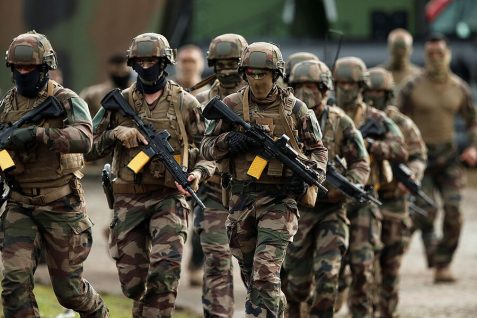
Malian collective ‘Yerewolo’ on Wednesday hailed a rumored deal between Mali and Russian mercenary group Wagner, a private security contractor which has also deployed in the Central African Republic. “If Wagner …
Malian collective ‘Yerewolo’ on Wednesday hailed a rumored deal between Mali and Russian mercenary group Wagner, a private security contractor which has also deployed in the Central African Republic.
“If Wagner went to liberate Syria, if Wagner went to liberate the Central African Republic, then we welcome Wagner to Bamako to liberate Mali. To the asymmetric war, we propose an asymmetric solution, which is called Wagner. This is the truth and today it is the end of French Africa,” said Adama Ben Diarra, the spokesperson for ‘Yerewolo’ collective.
Former colonial rulers France and Germany have warned the West African country against a deal with the group, amid claims that it is close to hiring 1,000 mercenaries.
Germany warned Mali on Wednesday that a deal with Russian private security group Wagner would “call into question” its deployment in the West African country as part of United Nations and European Union missions.
“If Mali’s government makes such a deal with Russia, then it goes against everything that Germany, France, the EU and the UN have been doing in Mali over the last eight years,” wrote Defence Minister Annegret Kramp-Karrenbauer on Twitter.
French sources told AFP this week that the Malian government was nearing a deal with Wagner to hire nearly 1,000 mercenaries, an agreement that would underscore Moscow’s growing influence in the region.
French Defence Minister Florence Parly on Tuesday warned Mali against signing a contract with Wagner, saying it would be “incoherent with everything we have done” in the Sahel region.
A spokesperson for the Malian defence ministry has not denied the discussions, which were first reported by Reuters news agency on Monday.
“Mali intends to diversify its relationships in the medium term to ensure the security of the country,” the spokesperson told AFP.
Growing anti-French sentiment in Mali
In May, protestors rallied in central Bamako to show support for junta leader Col. Assimi Goita waving Russian flags and chanting anti-French slogans.
In June, Paris ended military cooperation with the country before reversing the decision a month later.
Many in Mali say the country’s colonial master, which has deployed thousands of troops to fight armed groups since 2013, has no intention to defeat the insurgents but to continue to occupy and exploit the country.
Wagner security has deployed in the Central African Republic, undermining French influence there.